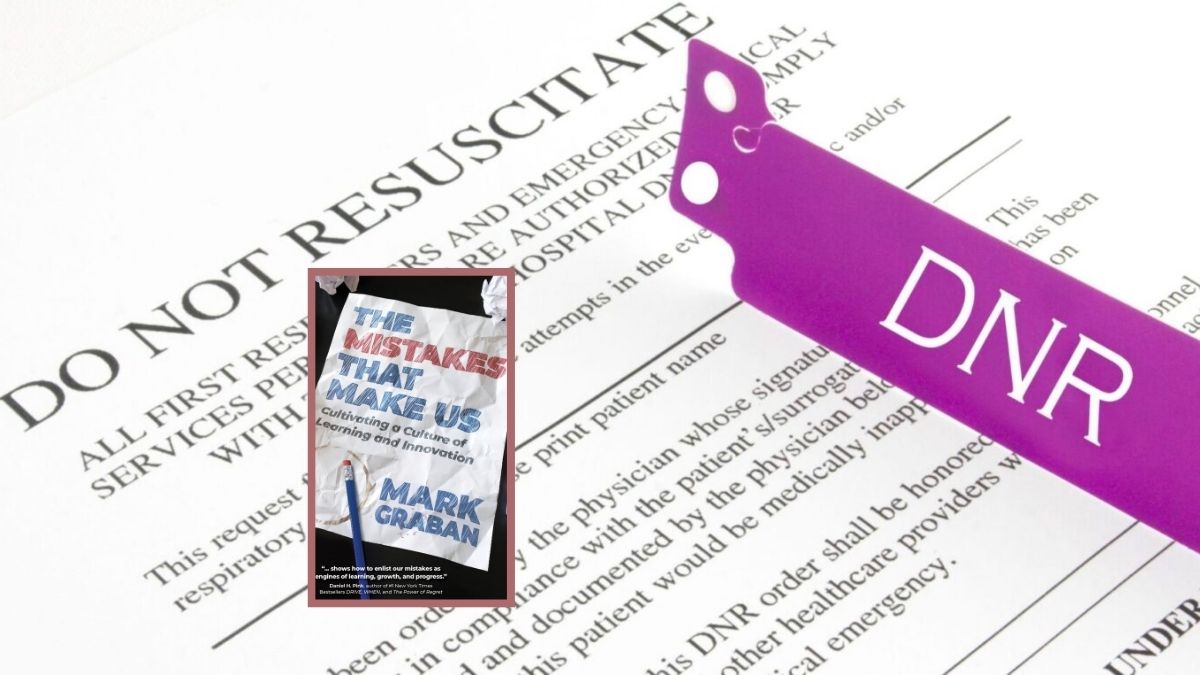In an unsettling tale from within our hospitals, a friend recently relayed an alarming incident. It’s a story that unveils the complex challenges our healthcare professionals grapple with and the silent crises that occasionally go unnoticed.
A diligent nurse, fresh out of school with just a year’s experience under her belt, was working her shift when she was hit with a situation no healthcare worker should have to confront. A patient unexpectedly went into cardiac arrest in the middle of the unit. Disturbingly, despite the urgent situation, none of the nurse’s colleagues went to the patient’s aid. They had mistakenly believed the patient was under a “compassionate care” status.
From the text message exchange:

For clarity, “compassionate care” is a term for the patient being under a “Do Not Resuscitate” (DNR) order, indicating that medical staff should not undertake life-saving measures in the event of a cardiac or respiratory arrest.
However, this wasn’t the handoff information provided about this patient. Tragically, the patient passed away.
The gravity of this incident is further compounded by the additional challenges facing this young nurse. Due to severe staffing shortages, a colleague had been called upon to work in another unit of the hospital. Notably, staffing shortages have become an all-too-common narrative in many hospitals. This new nurse’s experience paints a vivid picture of how dire the situation has become.
Despite being relatively new to the ICU, she is often tasked with caring for three intensive care patients simultaneously while also serving as the charge nurse, a responsibility that traditionally falls on more experienced staff. And the charge nurse role is ideally something a nurse can give their full attention to. Best practices recommend a 1:2 nurse-to-patient ratio in ICUs, highlighting the significant strain and risk under which these professionals are operating.
Sadly, such incidents often go unreported. The nurse feared the consequences of speaking out. In her words, she believes that raising concerns might lead to her and her colleagues being reprimanded, or worse, terminated. This is the catch-22 many healthcare workers find themselves in: a choice between voicing valid concerns and risking their livelihood. As a result, some grave incidents may be swept under the rug.
“Will this get covered up?” I asked.

Stories like these underscore the need for systemic reform in our healthcare settings. Leaders need to cultivate a culture of psychological safety, where staff can speak up about concerns and mistakes without the fear of punishment.
When mistakes like this are covered up, we’re doomed to repeat them.
The challenges of miscommunication, understaffing, and the pressure to remain silent can combine with devastating consequences. Both healthcare professionals and patients deserve better. Again, it is essential to create an environment where workers feel safe to voice their concerns without fear of retaliation. Only then can we truly address the root causes of such tragic events and ensure that every patient receives the best care possible.




An anonymous comment from a friend who works in healthcare, shared with permission:
It is of course tragic, and of course your points about psychological safety and staffing are on point. That said, the story as told raises other questions that I did not feel were appropriate to post.
For one, a nurse should never rely on what they hear in shift report concerning DNI/DNI. Patients can (and do) change their mind about their advance directives, and information obtained in a verbal handoff is often inaccurate. Nurses are supposed to review the patient’s EMR to check the most recent physician order re: code status. So it sounds like this nurse did not follow the protocol. I’m not blaming the nurse; as we know human errors almost always have a systemic cause.
The other part that bothered me is that I picture nobody attending to this dying patient. Maybe you were not given these details, but even if a patient is DNR, as a result of being in palliative or hospice care, that does not mean that comfort measures are not given, a and just left to die. They usually at least get pain medications, the family is called, and the patient is comforted by the care team members, and a chaplain or rabbi if they want one. The nurse and whatever other staff were there should have gathered the team. If they were short of staff a nurse manager should have been called to “float” other critical care nurses if available to cover the patients.
Again, maybe all this was done, but if not, it begs the question why. New nurses go through a probationary period before being allowed to work independently. How to handle a code for DNR or full code patients should have been covered.
I am not discounting the distress of this nurse, who deserved consoling, even if she made significant mistakes, nor am I criticizing the blog. You told the right lessons learned from what you were told.